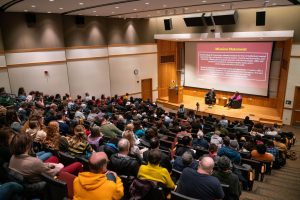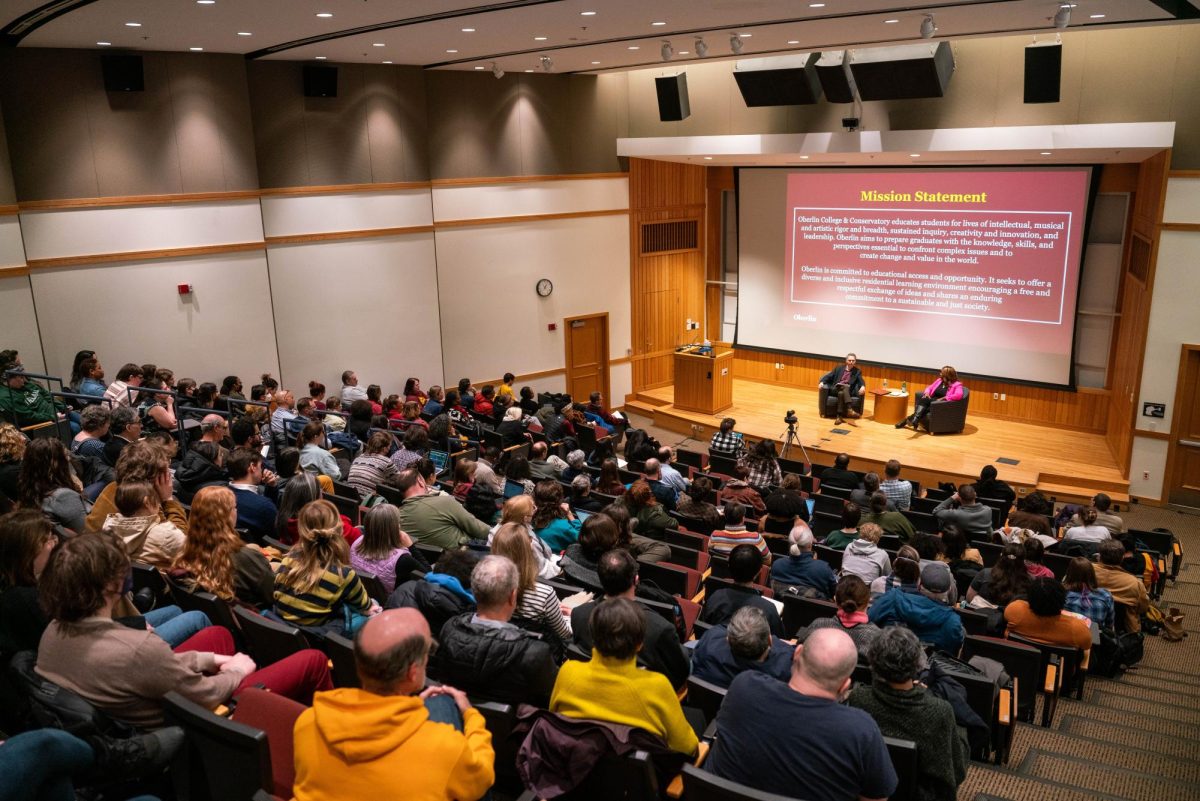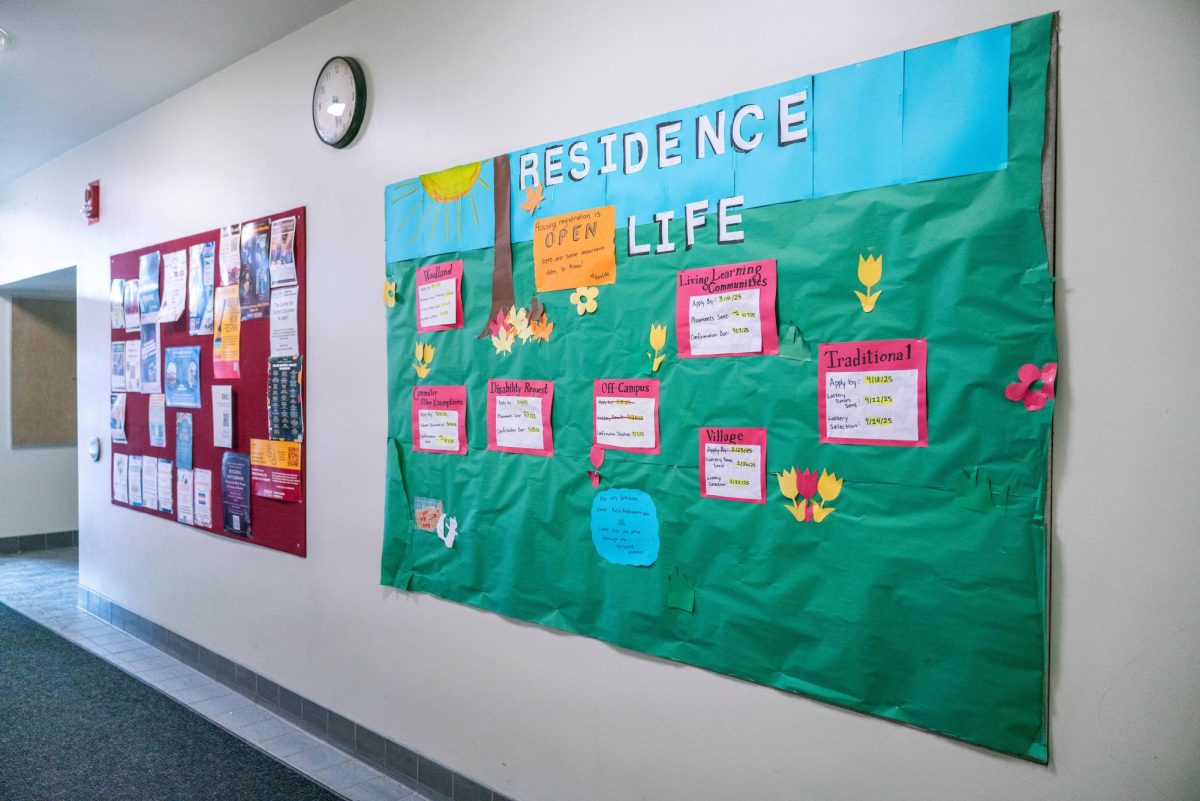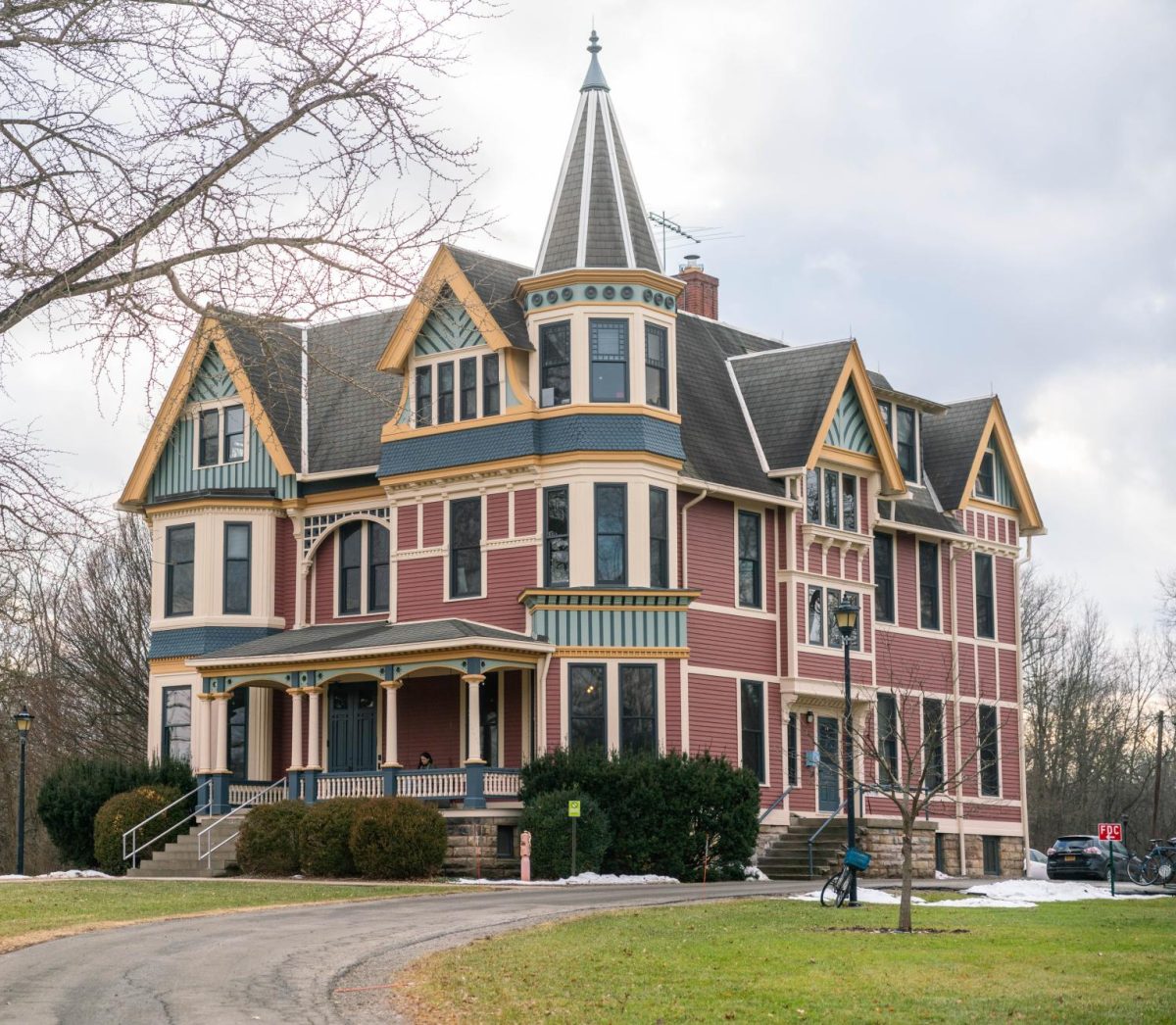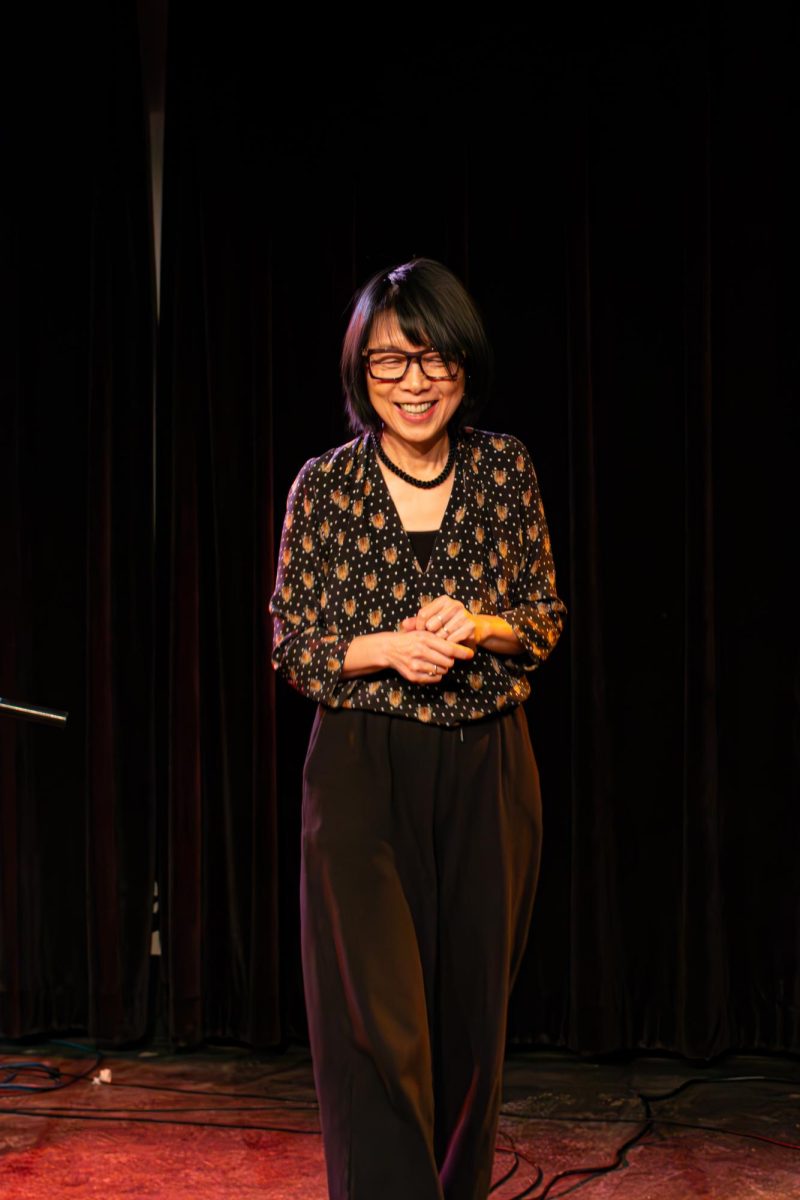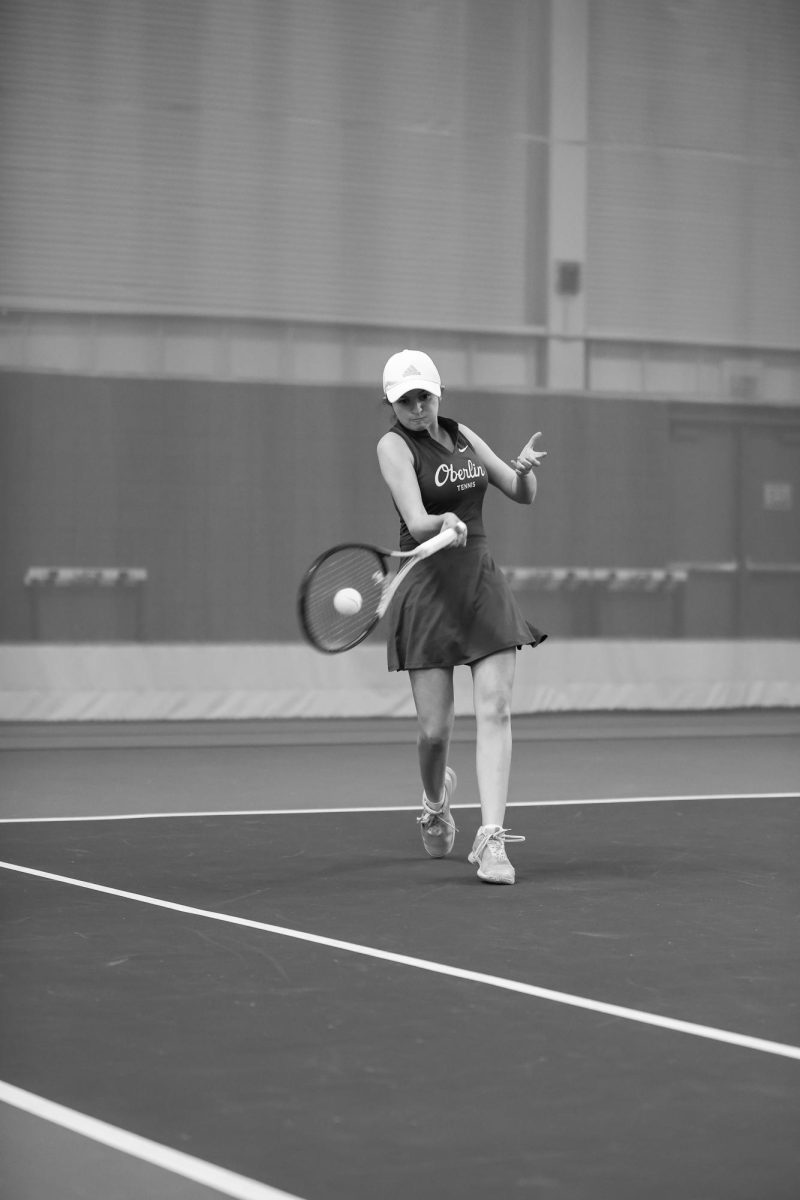Editorial: The Conscience of a Student-Athlete
May 4, 2012
Oberlin varsity athletes, “Student-Athlete Week” is almost upon us!
Truth is, I don’t quite know how to feel about the Week, which comes on the heels of similar NCAA-wide celebrations, like “National Student-Athlete Day” on April 6 and, from April 9–15, “National Division III Week.”
Those events came and went with little notice on our campus, but this Week — perhaps because it is exclusively ours, planned and administered by Oberlin’s Student Athlete Advisory Committee — carries a different, more audible timbre. The upcoming festivities — like the student-athlete “date auction,” an inter-varsity dodgeball tournament and the year-ending “OBIE” awards — carry the hollow ring of a self-congratulatory pat on the back.
I could say that the Week is like a big birthday, planned by your mother and sparsely attended: the kind of thing everyone gets an invitation to, but no one feels passionate enough about to bother RSVPing to. Earth Day comes to mind, an annual celebration of the existence of our never-ending planet. It’s been around for billions of years; Earth could care less whether or not it’s tacked on another year, or a million, and most of its human inhabitants feel this way too.
I could also say that the Week seems dangerously similar to one of those ever-proliferating, self-promotional-y “holidays.” Take Customer Appreciation Day, which you will see being celebrated occasionally at small businesses, especially rug shops (my uncle used to own one), and which you will consider genuine until returning a week later to the same exact rug shop (maybe my uncle’s!) only to find that Customer Appreciation Day is actually every day. I expect one day soon to find even conventional holidays co-opted by “the Man” as marketable assets. Imagine this billboard: “Christmas, sponsored by Walmart, now coming down the chimney five times a year!”
I’d be happy enough were Student-Athlete Week either birthday party or narcissistic self-promotion. But instead, it seems to emulate a different celebratory archetype — the celebration of a minority, in the style of Black History and Hispanic Heritage months, to name a few.
This framing should raise eyebrows. And not because considering “student-athletes” a minority is mistaken or petty. Rather, we should be troubled because, unlike those aforementioned events, which latch onto the concrete, though complex and ambiguous, issue of ethnicity, Student-Athlete Week seems to latch onto a subject that it is philosophically unsure of: the “student-athlete” itself.
Yes, I’m popping the question, to myself and all you Yeo-footballers, basketballers, softballers, volleyballers, track and fielders and even golfers: What the heck is a “student-athlete”?
I’ll give you my answer.
I didn’t choose to be a “student-athlete.” I chose to be an Oberlin student, first and foremost, and to be a member of the cross country and track and field teams. The “student-athlete” fraternity (sorority, gender neutral-ority, or whatever) I’ve since unwittingly become a part of was, for me, completely unexpected and, moreover, unprecedented.
In high school, runners composed the bottom of the athletics totem pole. We were the athletic also-rans and the nerds, so to speak, and looking back I was probably part both — too short and nervous to play basketball with the stoic trees, too self-conscious to kick the ball around with the soccer d-bags and too in love with line-dot structures and Lord Byron to be either. We runners remained solemn outsiders to the athletics empire, quietly jogging around the football field in our shorter-than-your-shorts shorts, while the football players checked out our thighs, whistling catcalls and yelling, “I can see your penis,” to all of us and none of us.
No, the last thing I considered myself back then was an “athlete.”
Since I’ve been at Oberlin, though, the catcalls have died down, and “student-athlete” now seems an apt identity. Admittedly, I’m not best bros with every “student-athlete” on campus, but there is an inevitable familiarity that arises from sharing the mildewed showers in the locker room and wearing the same colored jersey. It’s kind of like we’re all in it together, to roughly quote the Nine Inch Nails.
But who are “we” against? That’s the snag that catches me when it comes to “Student-Athlete Week” — the stipulation, which often implicitly arises when there is a minority, that there is a perhaps unfriendly majority. “Student-athletes” versus “non-athletes,” the collegiate manifestation of “us” versus “them.” It’s like the “student-athlete” is a kind of “mudblood,” somewhere between pro and “non-athlete,” the latter of which might be looked at as “muggle” or “pureblood,” depending on your perspective.
You’ve heard of such a dichotomy at the Division I level, where it’s becoming increasingly clear that the best of the best athletes get much more than a full scholarship to play their respective sports. At that level, the “student-athlete” is effectively a myth. (If you want your mind blown, read “The Shame of College Sports,” an article that appeared in The Atlantic a few months ago.)
But the separation is familiar even here, at lowly non-scholarship D-III Oberlin, where ostensibly the “student-athlete” lives in the form of weeklong celebrations. In a February 2001 article that appeared in this publication, Mike Muska, the first openly gay Athletics Director in NCAA history who at the time was at Oberlin, called it “Sportsphobia” — the open stigmatization of “student-athletes” by “non-athletes.” It’s not a stretch to say the term alluded to his own experiences with homophobia, perhaps, or any type of phobia you might imagine.
Here’s the thing: I’m not sure I agree with Muska, at least not when it comes to the Oberlin College I know. But I do wonder what events like Student-Athlete Week really mean, for the College, for “student-athletes” and for “non-athletes” alike. And I don’t have an answer, only a question. “Student-athletes”: a minority or just another part of the Oberlin milieu?



